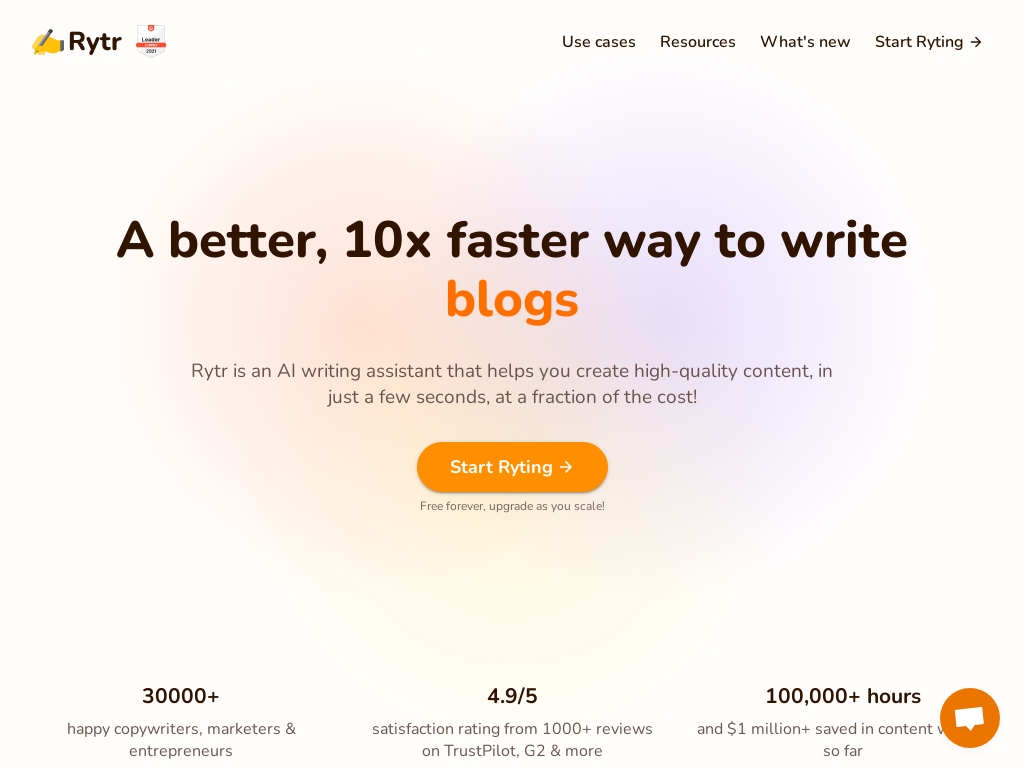
5 Writing Tool Success Stories [2025]
Crafting compelling written content is becoming increasingly essential in today's digital age. Imagine developing a writing tool that could revolutionize how people write.
The concept is simple: create software that assists users in drafting well-structured and engaging content. This tool could offer features like grammar checking, style suggestions, and even AI-generated content ideas.
Such a writing tool has broad appeal, from students and professionals to bloggers and novelists. Whether for academic papers, business reports, or creative writing, users could rely on this tool to elevate their work.
The journey of developing this writing tool would involve research, software development, and constant updates to ensure it meets user needs. If you’re passionate about helping people communicate more effectively, this business idea could be your next big venture.
In this list, you'll find real-world writing tool success stories and very profitable examples of starting a writing tool that makes money.
1. Reedsy ($24M/year)
Ricardo Fayet, CMO of Reedsy, didn't come up with the idea for the book publishing services marketplace. His co-founder Emmanuel mentioned it to him in university, and it stood out as a promising idea that leveraged the growing self-publishing trend and freelance economy movement in traditional publishing. They validated the idea by talking to industry experts and built a core team to bring it to life.
How much money it makes: $24M/year
How much did it cost to start: $40K
How many people on the team: 38


Reedsy, a book publishing services marketplace that connects authors with freelancers, has driven over $1m in GMV, features over 1,500 vetted freelance professionals, and sees over 1,000 projects every month.




2. InstaText ($600K/year)
Matej Guid, CEO and co-founder of InstaText, came up with the idea for his AI-based online writing assistant while working as a professor and struggling with editing academic papers. Leveraging advances in AI, Guid and his team created a tool that uses reinforcement learning to continuously improve text, resulting in over half a million active users and more than $50k in monthly revenue in just two years. InstaText was even named the Slovenian Startup of the Year in 2020.
How much money it makes: $600K/year
How much did it cost to start: $50K
How many people on the team: 4

InstaText is an AI-based online writing assistant that helps non-native speakers improve their English, with over half a million active users from 150 countries worldwide, bootstrapped from $0 to $50k monthly revenue in two years and quadrupled their sales in 2021, becoming Slovenian Startup of the Year and expanding to web applications and browser extensions.




3. The Word Counter ($240K/year)
In college, the need for a reliable word counter was clear. Like many students, frequent use of character and word counting tools was a necessity, but none stood out as authoritative. Many tools were clunky and lacked comprehensive features, which sparked the idea to create a more user-focused solution.
The aspiration was not just to build another tool but to fill a gap with a product that could be the go-to resource for English language queries. With a strong background in SEO, the idea also presented an opportunity to test and showcase SEO strategies. This led to the development of a one-stop tool that not only counted words but also provided insightful data about writing.
Before development, research into existing tools underscored their shortcomings, guiding the design of a tool that was both easy to use and visually appealing. Feedback during this phase highlighted the need for clear, consolidated information displays. While challenges arose, such as maintaining quality on a budget, the process reinforced the importance of investing in superior development and content.
How much money it makes: $240K/year
How much did it cost to start: $25K
How many people on the team: 1

Founder Kevin Miller's online word counter tool achieved over 300,000 keyword rankings, over 2,400 domain referrals and made $40,000 per month through Google's top results in just two years through SEO practices, proving the value of investing in quality and SEO.




4. Rytr ($60K/year)
Abhi, the founder and CEO of a startup platform and business incubator, came up with the idea for Rytr, an AI writing assistant, after realizing the pain points of content generation for small teams. With the potential he saw in GPT3 technology, Abhi set out to create an intuitive AI assistant that offered the best quality outputs, launching in April 2021. Since then, Rytr has become a market leader with 300,000+ customers worldwide and plans for future growth.
How much money it makes: $60K/year
How much did it cost to start: $25K
How many people on the team: 1


Rytr, a new AI writing assistant developed by a startup platform and business incubator, has become a market leader, serving over 300,000 customers across the world and doing seven figures in ARR.




5. WritePhobia ($360/year)
After struggling with his own discipline in writing, software engineer Burak Kanber built WritePhobia, an app that punishes writers for not meeting their daily word count goals. With a few dozen users already on the app, Burak has done zero marketing and is gaining traction through word-of-mouth and social efforts.
How much money it makes: $360/year
How much did it cost to start: $50
How many people on the team: 0


Burak Kanber created WritePhobia, an app that motivates writers to write regularly by punishing them for not meeting their word count goals, which has gained a usership of a few dozen users in public beta and has found success through word-of-mouth marketing.





Download the report and join our email newsletter packed with business ideas and money-making opportunities, backed by real-life case studies.

Download the report and join our email newsletter packed with business ideas and money-making opportunities, backed by real-life case studies.

Download the report and join our email newsletter packed with business ideas and money-making opportunities, backed by real-life case studies.

Download the report and join our email newsletter packed with business ideas and money-making opportunities, backed by real-life case studies.

Download the report and join our email newsletter packed with business ideas and money-making opportunities, backed by real-life case studies.

Download the report and join our email newsletter packed with business ideas and money-making opportunities, backed by real-life case studies.

Download the report and join our email newsletter packed with business ideas and money-making opportunities, backed by real-life case studies.

Download the report and join our email newsletter packed with business ideas and money-making opportunities, backed by real-life case studies.











